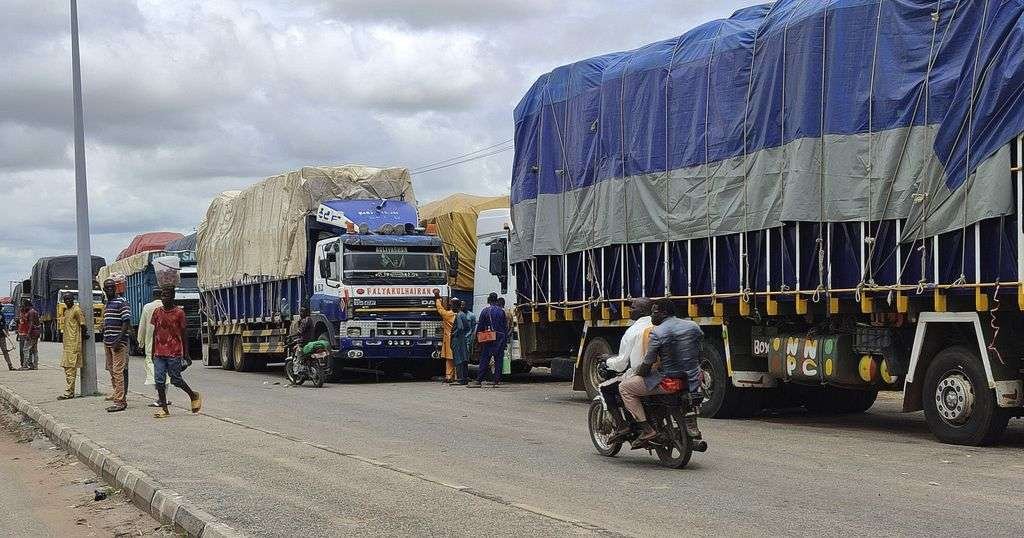Abuja, Nigeria – (African Boulevard News) – Local businesses in northern Nigeria are feeling the sting of regional sanctions against neighboring Niger. The restriction of movement across the border has not only impacted traffic but has also had a significant effect on the economy of the region.
The Nigerian authorities have taken measures to enforce the restrictions on movement, but these actions have unintended consequences for local businesses. One such consequence is the impact on truck drivers who are not heading to Niger but have to traverse the surrounding area.
These sanctions have led to a decrease in the number of trucks passing through the region, which has directly affected the local businesses that rely on the transportation sector. The drop in truck traffic means fewer customers for roadside eateries, petrol stations, repair shops, and other businesses that cater to the needs of truck drivers and their crews.
“The decline in truck traffic has been devastating for our business. We used to have a steady flow of customers, but now, it’s almost like a ghost town,” says Ibrahim Musa, owner of a roadside restaurant in Kano, a major city in northern Nigeria.
The impact of these sanctions goes beyond just the transportation sector. There has been a ripple effect on other businesses as well. The decrease in economic activity has led to reduced spending power for locals, resulting in a decline in sales for retail stores and markets.
Abdullahi Bello, a shop owner in Sokoto, another city in northern Nigeria, laments, “We used to have a thriving business with customers coming from both sides of the border. But since the sanctions were imposed, our sales have dropped drastically. It’s a struggle to keep the business afloat.”
The economic downturn caused by the regional sanctions is putting additional strain on an already fragile economy. Northern Nigeria, like many other regions in the country, has been grappling with high unemployment rates and poverty levels. These sanctions only exacerbate the challenges faced by local businesses and the communities they serve.
As stakeholders, experts, and lawmakers evaluate the impact of these sanctions, there is a need for dialogue and collaboration to mitigate the adverse effects on local businesses. Finding alternative solutions that can address security concerns while minimizing the economic fallout should be a priority.
The Nigerian government is also urged to support affected businesses by providing financial assistance, creating incentives, and exploring alternative trade routes to help mitigate the negative effects of the sanctions.
In conclusion, the regional sanctions against neighboring Niger have had a detrimental impact on local businesses in northern Nigeria. As the restrictions continue to be enforced, it is necessary for stakeholders to come together and find sustainable solutions that can strike a balance between security and economic stability in the region.

